Manningtree wild swimmers stage River Stour sewage protest
- Published
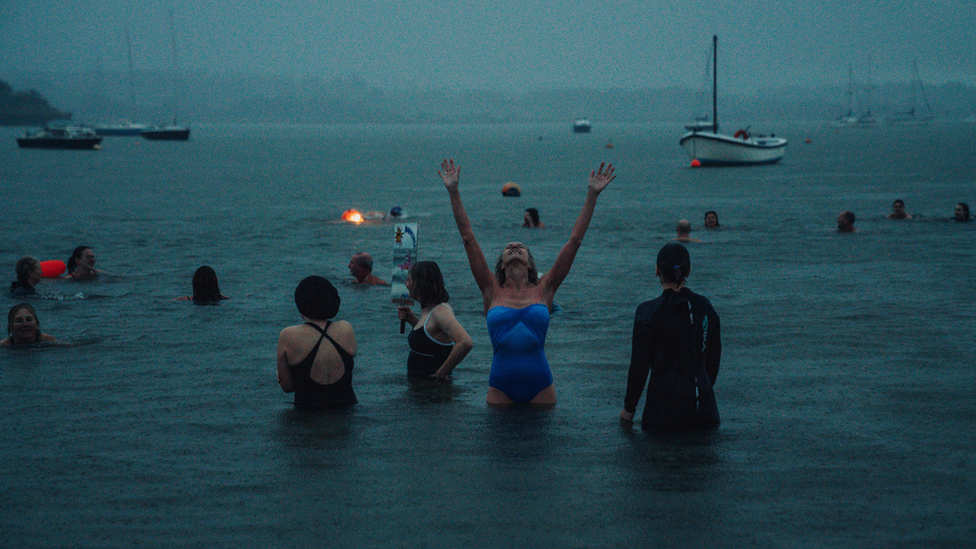
The Manningtree Mermaids group has 100 members who enjoy swimming in the River Stour
Wild swimmers concerned about declining water quality have staged a protest in a river.
Water companies discharged raw sewage into rivers in England more than 400,000 times last year, according to the Environment Agency.
The swimmers, from Manningtree, Essex, said the government urgently needed to announce a clear plan on the issue.
The government said it would strengthen its environment bill, external, which will be debated by MPs next week.

Kellie Rogers, centre, started the group during lockdown and has been surprised by how much it has grown
Ness Woodcock-Dennis, a public health nurse and lecturer in nursing who took part in the protest in the River Stour at sunrise with about 50 others, said more needed to be done.
"I find it unfathomable that at a time of utter crisis in health that this government deemed it appropriate to support the continuation of water companies allowing raw sewage to be discharged into our seas and rivers," she said.
"Raw sewage poses a serious threat to our fragile eco-system and to human health as bacteria such as E. coli are present in faeces being discharged into our water."

Around 50 swimmers took part in the protest in Manningtree, Essex at sunrise
Kellie Rogers started the group, known as the Manningtree Mermaids, which has grown to about 100 members.
"All the people are so different and yet in the water we are all the same. It's so wonderful that we have come together to support the health of our planet as well as each other," she said.
Annie Jones, aged five, took part in the protest and said she was really worried about the river."I love swimming here and I really hope it doesn't get too dirty that I can't swim here anymore," she said.
Other wild swimming groups in East Anglia have had members leave due to health concerns.

Jess Ashley, pictured left with fellow wild swimmer Laura Lennox, uses cold water to ease her back pain
Veterinary nurse Jess Ashley said it would be devastating if the water quality got so bad she could not swim.
"I started wild swimming because of my back pain," she said. "The cold water eases the pain but I soon learnt over lockdown it helped with my mental health too. I have met so many new friends and found the health benefits so amazing."
Water companies are allowed to release sewage into rivers after extreme weather events, such as prolonged heavy rain, to protect properties from flooding.
Raw sewage, including human waste, wet wipes and condoms, was discharged for more than three million hours in 2020, which is a 37% increase on the previous year.
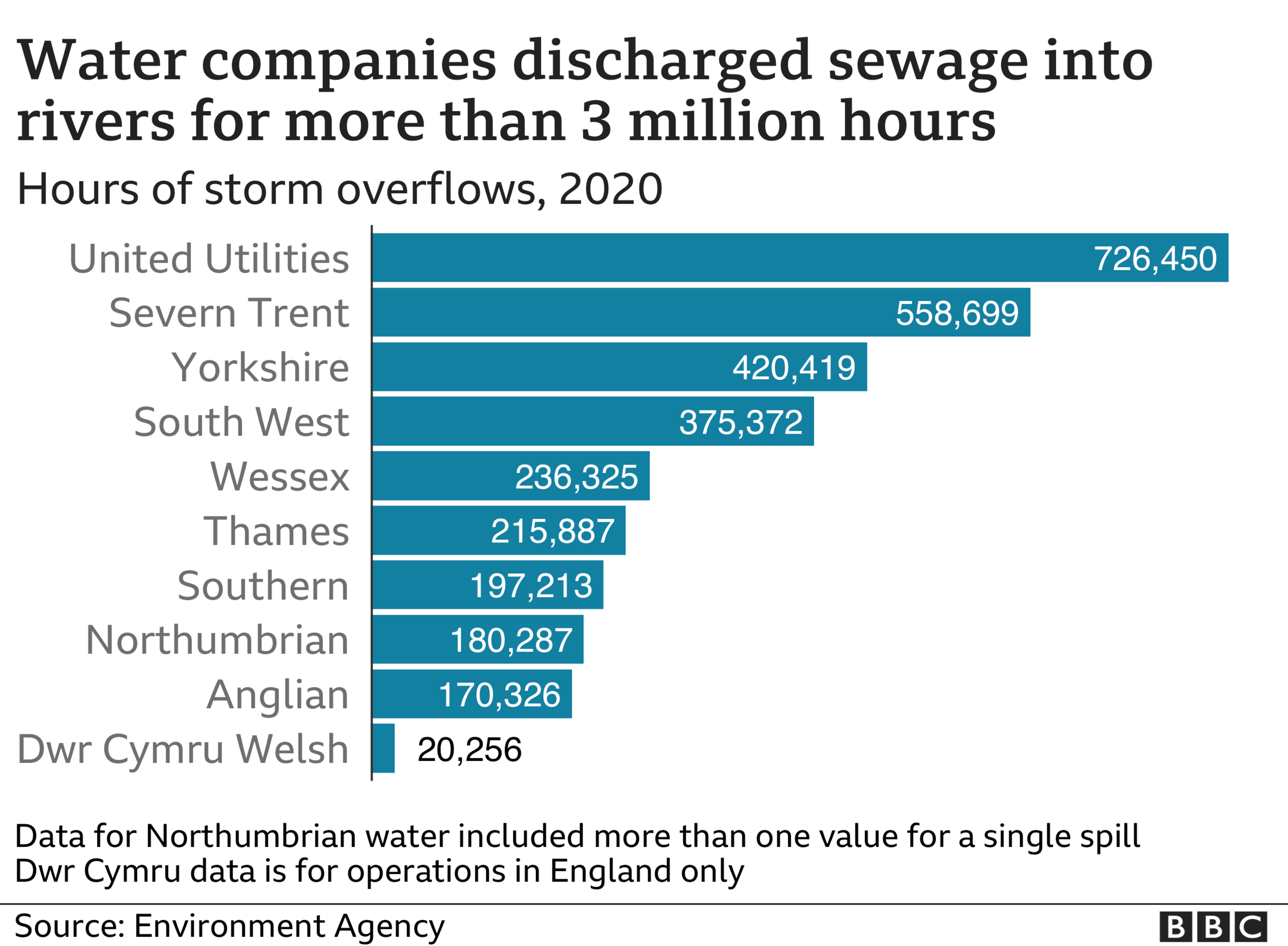
Conservative MPs were widely criticised after voting down an amendment that would have forced water companies to stop pumping as much waste into waterways.
After a public backlash, the government said it would table its own amendment to place a legal duty on the firms.

Local MP Sir Bernard Jenkin (left), who has a strong voting record on environmental issues, took part in the protest
Sir Bernard Jenkin, MP for Harwich and North Essex, attended the protest. He was one of 22 Conservatives who rebelled against the government last week, in contrast to 265 MPs who voted to reject the amendment.
"The government was always committed to ending the routine dumping of sewage into our rivers and coastal waters, whenever there is heavy rain, but I voted against the government last week because the environment bill did not say how or when this would be achieved.
"We are waiting to see the detail of the government's new amendment, but I am hopeful that they have got the message," he said.

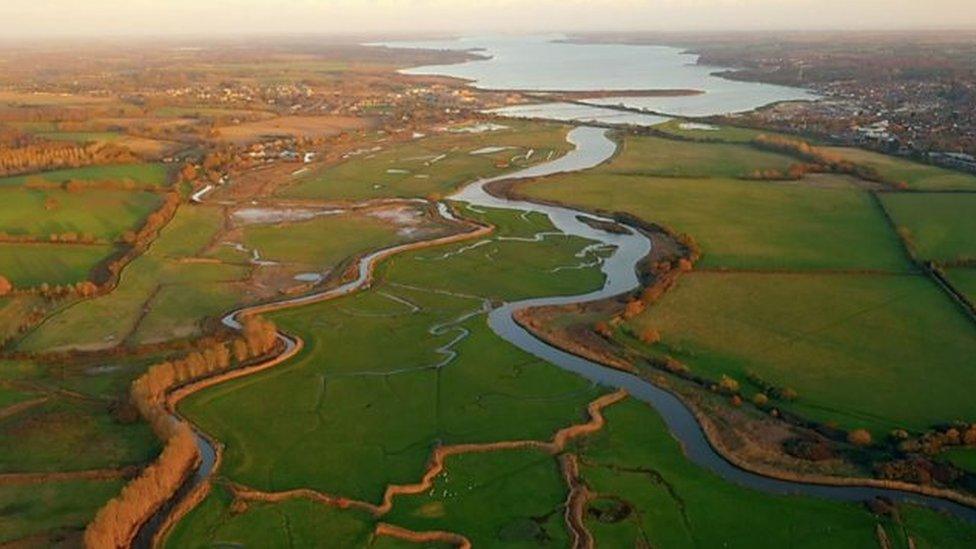
The River Stour is 47 miles (76km) long and stretches from Cambridgeshire to Suffolk and Essex, where it meets the sea
How clean is the River Stour?
Anglian Water said there were 187 sewage spills into the river in 2020, from the storm discharges they were able to monitor, each during heavy rainfall.
The Rivers Trust, external said it had counted more than 1,000 hours of raw sewage being discharged into the river last year, mainly in Dedham near Manningtree.
Nic Bury, professor of environmental toxicology at the University of Suffolk, is running a project looking at E. coli counts in rivers of Suffolk and Essex.
A river sample he took in Manningtree showed an E. coli count of 1000cfu/100ml. The threshold for good bathing water is less than 500cfu/100ml.
"Even though this is a snapshot and a lot more work needs to be done to get a clearer picture, it is worrying and contributes to the debate on the health impacts of bacterial contamination in our waters," he said.

Mother-of-three and small business owner Anna Helm Baxter, who swims in Manningtree at high tide most days and regularly takes her children to the beach there, said it was now time for bold action.
"Keeping our waterways clear is vital for our country's health and biodiversity," she said. "I applaud Sir Bernard Jenkin for standing up in a crowd of profiteers and green washers.
"I hope he continues to put the environment first and others take note of his willingness to rebel for what is right."

Anna Helm Baxter and her son Charlie took part in the protest and are very passionate about the environment
The government suggested it would cost more than £150bn to replace the Victorian sewerage system in order to eliminate the discharges from storm overflows, though some experts have disputed the figure, external.
It said it was working on a plan to reduce the practice and said water companies had already received record-breaking fines for releasing unacceptable amounts of sewage into rivers.
A spokeswoman for Anglian Water said: "We welcome the environment bill's new provisions on storm overflows, and are keen for the secretary of state to bring forward a plan to reduce discharges and reduce their impacts.
"However, flooding and river quality are about much more than storm overflows. Agriculture, highways teams and customers all have a role to play in the health of our rivers."

Find BBC News: East of England on Facebook, external, Instagram, external and Twitter, external. If you have a story suggestion please email eastofenglandnews@bbc.co.uk
- Published29 October 2021

- Published26 October 2021
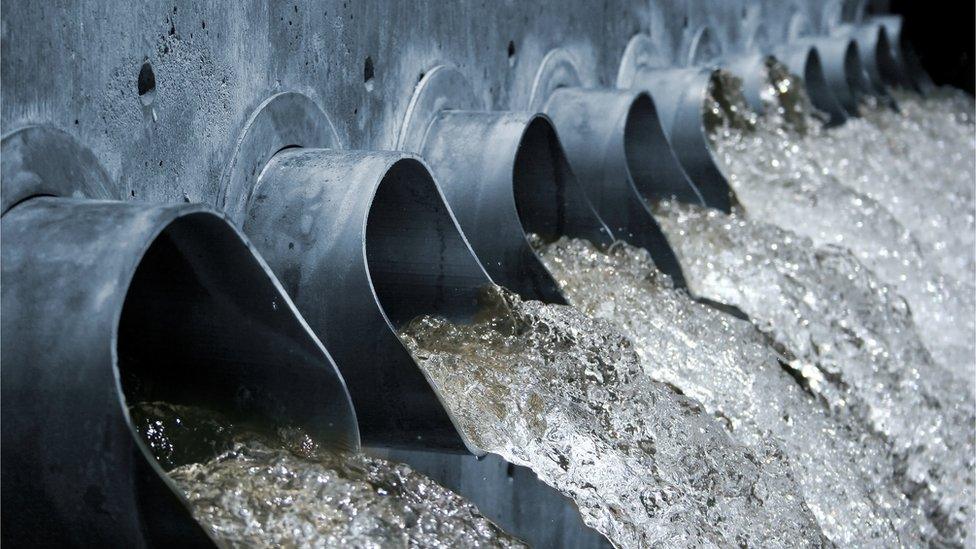
- Published25 October 2021
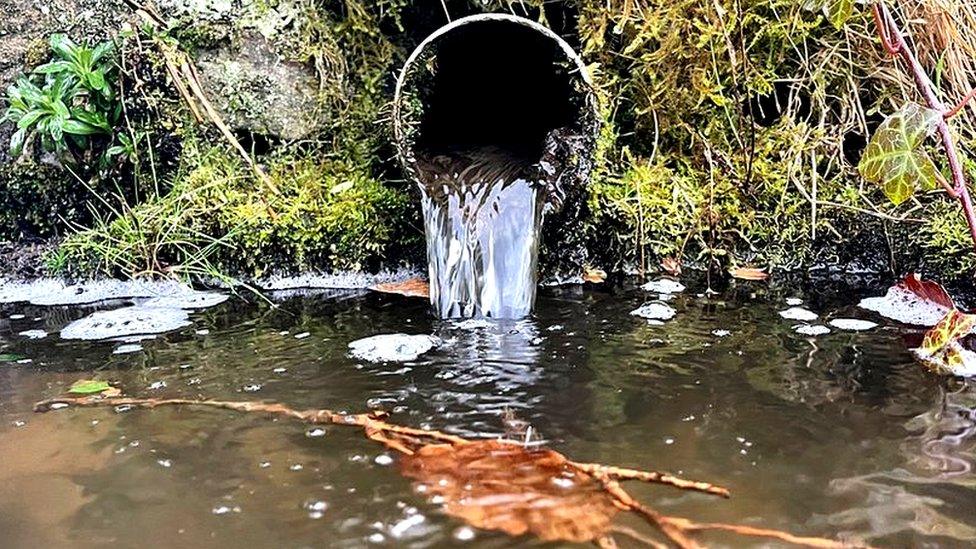
- Published31 March 2021
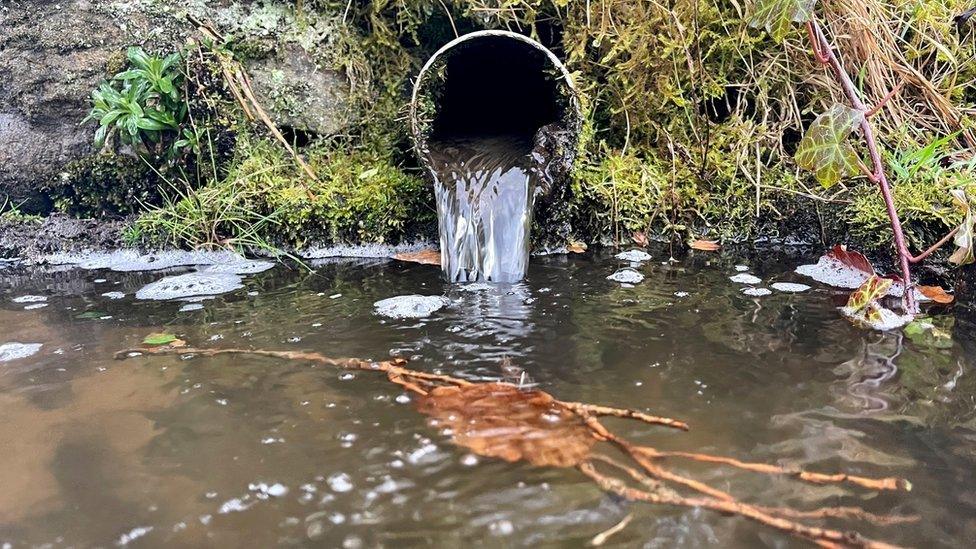
- Published29 April 2019
